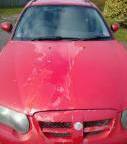Yank poor starting, fixed it!
-
Similar Content
-
- 452 replies
- 51,453 views
-
That should fix it 1 2 3
By DavidB,
- 64 replies
- 6,964 views
-
- 22 replies
- 674 views
-
Kollectionie starting soonish
By castros_bro,
- 23 replies
- 1,847 views
-
Renault Megane fixed for £1
By Peter C,
- 0 replies
- 342 views
-







Recommended Posts
Create an account or sign in to comment
You need to be a member in order to leave a comment
Create an account
Sign up for a new account in our community. It's easy!
Register a new accountSign in
Already have an account? Sign in here.
Sign In Now